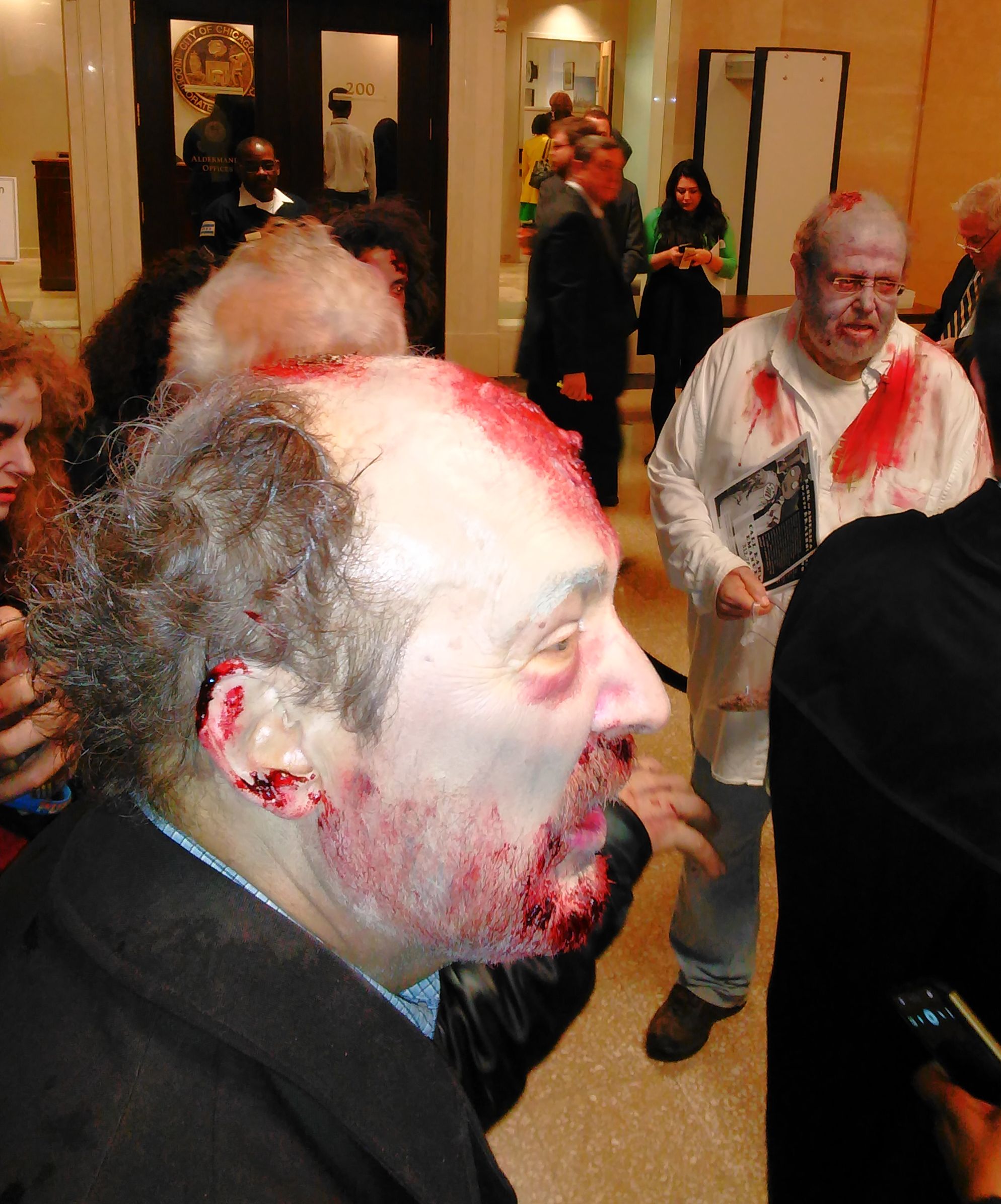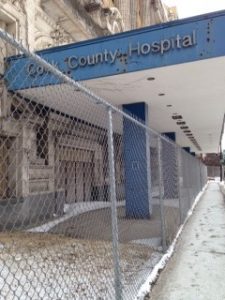The City Council on Wednesday approved Mayor Rahm Emanuel‘s $7.8 billion budget, the centerpiece of which is a 4-year, $580 million increase in property taxes.
 Aldermen supporting the budget said it was the city’s only viable option to deal with its structural deficit. Aldermen not supporting the bill cited the tax hit to property owners as the main reason for their opposition.
Aldermen supporting the budget said it was the city’s only viable option to deal with its structural deficit. Aldermen not supporting the bill cited the tax hit to property owners as the main reason for their opposition.
Several alderman from both camps mentioned the Chicago’s first-ever garbage collection fee as being a popular complaint among their constituents. The aldermen said that feel, combined with the increased property tax would unfairly impact citizens already barely hanging on to their homes.
Emanuel said the tax hike is necessary because the city’s financial problems “hung over the city like a dark cloud.” Bond agencies have already downgraded the city’s credit rating, resulting in higher debt service obligations.
Emanuel blamed past bad financial practices for the city’s deficits, which included severely underfunded police and fire pensions. The city was hoping for a reprieve in the form of a pension reform bill passed by Springfield, which would have given the city more time to replenish the pension funds, but the bill was declared unconstitutional by the Illinois Supreme Court.
“We held off property taxes for four years and worked through this budget every time to find savings and make cuts,” Emanuel said, pounding the table as he stood before aldermen just before the vote.
During the last mayoral campaign in early 2015, Emanuel often said raising property taxes would be a “last resort.”
Emanuel said with the passage of the budget, the city will not have to eliminate thousands of police and fire jobs or cut back on basic services like tree trimming and street repair.
The mayor’s budget also seeks to spur job growth by spending $250,000–along with securing $750,000 from private donors–to place 1000 qualified workers in manufacturing jobs in the city.
West Side Ald. Emma Mitts (37th), cited that initiative in her support for the budget.
“I’ve always talked about jobs, and this budget will continue to support jobs for Chicago manufacturing programs,” Mitts said.
Opponents, however, said the bill will hurt lower-income residents more than it will help.
“It’s easy to go to those with the least power and say ‘Give me more out of your pocket,” said North Side Ald. Carlos Ramirez-Rosa (35th).
West Side Ald. Jason Ervin (28th), who voted against the budget, added, “It would be difficult for me to sleep at night knowing that some of my most vulnerable people will have to make some decisions that no one should have to make.”
North Side Ald. Harry Osterman (48th) also voted no, saying businesses and homeowners would be hurt by this budget.
“There’s been a lot of debate today, but who’s going to pay the bill for this?” Osterman said, adding that renters struggling to stay in Chicago will likely be displaced when landlords raise rents to cover higher property taxes.
The mayor and his supporters maintained the pain will be felt by everyone, but passing the bill, however difficult, is the “responsible” decision – a word repeated frequently on the council floor.
Supporters also noted the mayor’s budget includes money for school construction and summer youth jobs, about $16 million for free pre-kindergarten for low-income children and $10 million on street repairs.
“All parts of the city gained and no one part bore the total burden,” Emanuel said.
The budget will allow the city to meet its pension obligation next year, the mayor said, but that will require the obligation being sliced to $220 million; the result of legislation passed by the General Assembly last spring but yet to be signed by Gov. Bruce Rauner. Opponents argued that the city can’t reply on Springfield to bail them out.
South Side Ald. Carrie Austin (34th), who chairs the council’s budget committee, praised the mayor for his proposal.
“We have to do the responsible thing in this body and that’s to vote yes on this budget,” she said.
“It’s not easy for anyone to pick up this heavy lifting. I’ve lifted some heavy budgets and this one is weighing me down.”
Some theatrics took place at City Hall prior to the meeting, with citizens opposed to the budget showing up dressed as zombies.
Wearing ripped clothing and sporting makeup of bloody and bruised faces, about a dozen protesters moaned and stumbled along outside council chambers speaking as ” corporate zombies.” The protesters said the city is under attack and they want the aldermen and mayor to fight back against Wall Street.
“The zombies are after our tax dollars,” one protester said.
Jesse Sharkey, Vice President of the Chicago Teachers’ Union, joined protesters outside council chambers. He said tax dollars should go toward improving people’s lives, not holding them down.
“The budget is heavy on taxes and has not found a solution for asking the wealthiest people to pay more,” Sharkey said.
Sharkey also voiced support for the zombies.
“They’re trying to get their voice heard,” he said. “There’s no ordinance against zombies going into a budget hearing.”
Asked if there were CPS teachers under that make-up, he conceded that there “may be a retired teacher or two.”











Be First to Comment